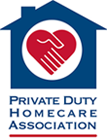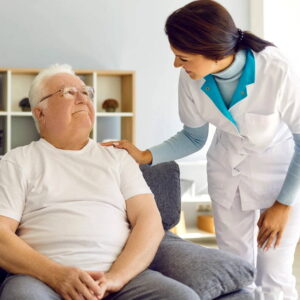During the winter season, snow, ice, and cold temperatures can make life difficult. Cold weather and slippery sidewalks can result in a wide range of illnesses and injuries. This is especially true for our senior loved ones.
Having elderly care from reputable home healthcare businesses to help your aging loved one on a regular basis, can help them remain safe during the winter months. Here are some tips to prevent common winter-time dangers that the senior population faces.
- Dress for Warmth
Winters cold temperatures can lead to hypothermia and frostbite. According to the Centers for Disease Control, more than fifty percent of hyperthermia deaths wear of individuals over the age of sixty-five.
So, dress in layers and do not allow indoor temperatures to go too low. If heading outside, a heavy coat, warm socks, warm hat, scarf, and gloves should be worn.
- Slipping in Ice
Snowy, icy sidewalks and roads make it easy to fall and slip. Unfortunately, senior citizens are a common victim of falls. This is especially true in the winter months. In many cases, falls result in major injuries such as wrist and hit fractures, major lacerations, and head trauma.
It important that your senior loved one to wear shoes with good traction and non-skid soles.
- Fight Wintertime Depression
Since it is dangerous and difficult to get around, many aging loved ones have less contact with others during the winter season. This can lead to isolation and feelings of loneliness.
To help prevent these types of issues, the senior loved one’s family members should check in on them as often as possible. Or, even a daily phone call can make a huge difference. Perhaps a check-in system can also be arranged with friends and neighbors, where each person checks in on one of the others.
- Prepare for Power Outages
Power outages are common during winter storms. It is important to have easy access to a battery-power radio and flashlight in case the power goes out. Also, stockpile warm blankets. Wear several layers of clothing, as well as a hat. Keep a supply of non-perishable foods as well.
- Prevent Carbon Monoxide Poisoning
Using lanterns, fireplace, or gas heaters can lead to carbon monoxide poisoning. It is important to ensure the safety of your aging loved one by checking the batteries on their carbon monoxide detector and if you need to purchase a new one, then do so.
- Eat a Varied Diet
Nutritional deficiency can be a problem because in the winter months people spend more time indoors and consume a smaller variety of food. Dieticians recommend consuming foods that are fortified with Vitamin D milk, such as milk, and seafood options such as salmon and tuna.
Asking for help is the most important tip to keep in mind during the winter months. Do not hesitate to ask your family, friend, and neighbors or hire a professional if the property needs to be clear of ice and snow. Never be afraid to reach out for help.




